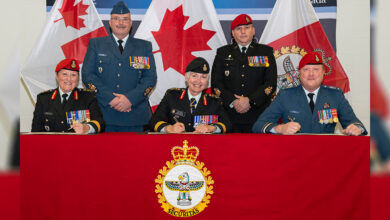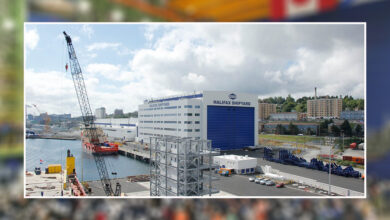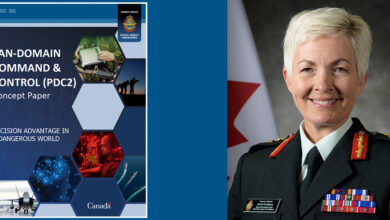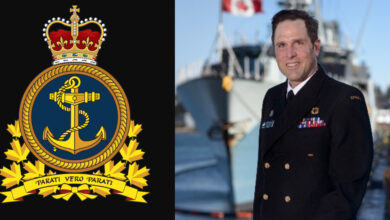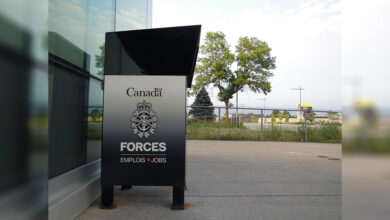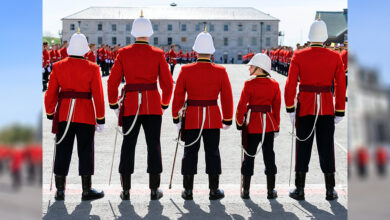Policy
Government Announces $11.2 Billion Investment in RCAF Aircrew Training
The government will be pouring $11.2 billion over the next 25 years into modernizing the Royal Canadian Air Force’s (RCAF) aircrew training.
The $11.2 billion investment is in the form of a contract with SkyAlyne Canada Limited Partnership for the Future Aircrew Training (FAcT) Program.
“Today’s investments demonstrate that when we work collaboratively with Canadian industry partners, we can provide our troops with the tools that they need to do their jobs – and support good jobs right across Canada. With these projects, and through our renewed vision for defence, Our North, Strong and Free, we are committed to building an even stronger relationship with industry, founded on transparency and trust,” said Bill Blair, Minister of National Defence, who made the announcement during the Canadian Association of Defence and Security Industries (CADSI) annual defence industry trade show, CANSEC, in late May.
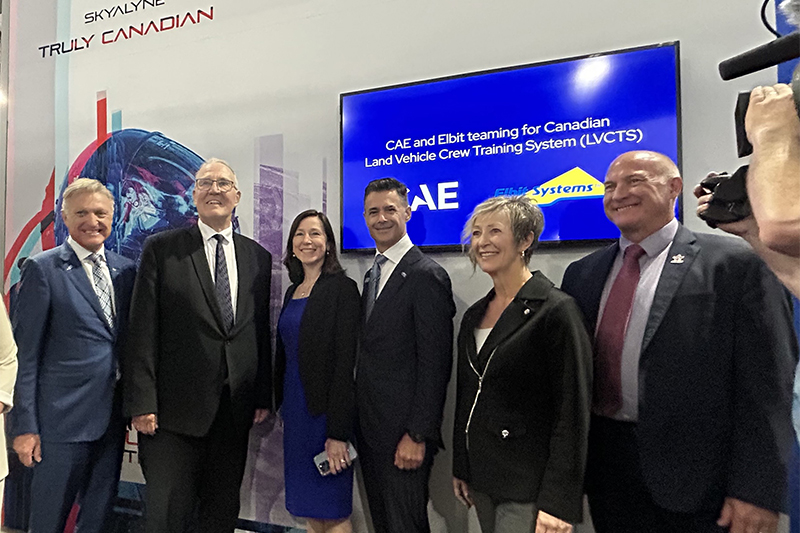
Contract Details
The investment is being hailed as the “largest recapitalization” of the RCAF since the Second World War.
Under this contract, the RCAF will receive 70 training aircraft, according to the Department of National Defence (DND). These aircraft will be split into five fleets:
- Grob G120TP,
- Pilatus PC-21,
- Beechcraft King Air 260,
- Airbus Helicopters H-135, and
- De Havilland Dash 8-400.
The contract not only provides for vehicles but also will include instruction, simulator and flight training and other on-site supports for future RCAF Pilots, Air Combat Systems Officers, and Airborne Electronic Sensor Operators.
“Nothing is more important than our people. We must modernize our training systems as we are modernizing our front-line equipment and weapons systems. The Future Aircrew Training program will do that by incorporating the latest training concepts and technologies and adapting to emerging trends to ensure Royal Canadian Air Force personnel can operate and win in highly contested and increasingly complex theatres of operation,” said LGen. Eric Kenny, Commander RCAF.
Training will begin in spring 2029 and will take place at RCAF Wings in Saskatchewan and Manitoba, according to DND.
The investment is part of a larger effort to modernize the RCAF and the Canadian Armed Forces at large. Since 2022, the government has planned to procure or upgrade 140 new aircraft, such as F-35 fighters and P-8A Poseidon.
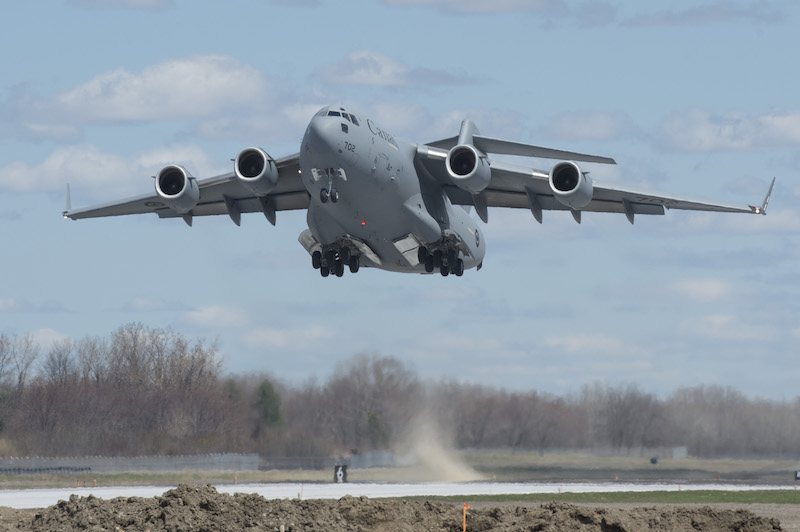
FAcT Program
The FAcT program contract replaces training services currently provided through in-house delivery by the RCAF and two additional contracts with CAE Military Aviation Training and Allied Wings.
The military says the program will deliver training services essential for members to graduate to Operational Training Units. The program will use sites currently already in use. For example, aircrew training for pilots, air combat system officers, and airborne electronic sensor operators will be conducted at 15 Wing Moose Jaw, Saskatchewan, Portage la Prairie, Manitoba, and 402 Squadron, at 17 Wing Winnipeg, Manitoba.
The program is also expected to create or sustain 3, 400 jobs and contribute $405 million into Canada’s economy over the next 25 years.
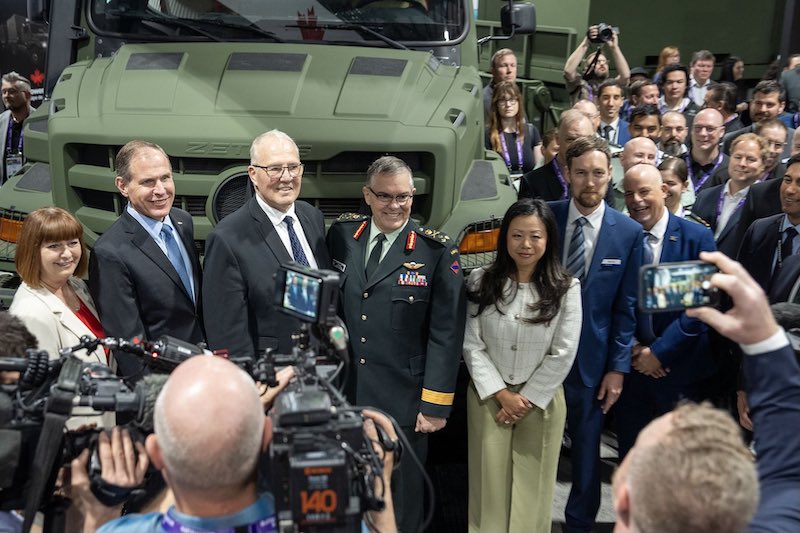
Canadian Army Investment
During the CANSEC trade show, Minister Blair also announced an investment of $2.58 billion to acquire and maintain a new fleet of logistics vehicles for the Canadian Army. The contract was awarded to General Dynamics Land Systems-Canada alongside Marshall Canada.
The project will help provide the Canadian Army with over 1,000 light trucks and approximately 500 heavy trucks. The contract also provides for equipment such as armoured protection kits, modules, containers, and trailers.
According to DND, the new fleet will allow the CAF to “transport larger loads of personnel, equipment, and supplies while also providing increased mobility and protection for CAF members.”
The vehicles are expected to be delivered in 2027 and will replace the vehicles that have been in use since the early 1980s and 1990s.
“These major contracts underscore Canada’s commitment to fortifying our national defence while simultaneously bolstering our industrial landscape. These programs showcase our dedication to equipping our Armed Forces with cutting-edge capabilities while propelling the growth of our defence sector. Through the Industrial and Technological Benefits Policy, we ensure that these investments not only strengthen our defence capabilities but also nurture the leadership of Canadian supply chains, fostering job creation and economic prosperity for years to come,” said François-Philippe Champagne, Minister of Innovation, Science and Industry.




